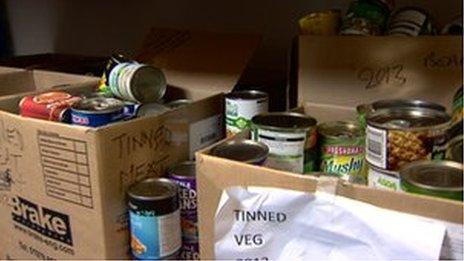Foodbank demand prompts hunger warning by archbishop
- Published
James Hopson was forced to seek help from a foodbank when his benefit payments were delayed
The Archbishop of Wales has urged the UK government to tackle a national hunger crisis as figures show a big rise in numbers using foodbanks.
The Trussell Trust said it had given emergency food aid to nearly 80,000 people in Wales in the last 12 months, more than double the 2012-13 figure.
Archbishop Barry Morgan said it was "incredible" for this to happen in such a "prosperous country".
More than 500 clergy signed a letter as part of the End Hunger Fast campaign.
The Church in Wales said the letter, backed by more than 40 bishops, marked the biggest ever intervention by faith leaders on the issue of UK food poverty in modern times.
The Trussell Trust, which helps people referred to its food banks by social workers or other professionals, said the number of people receiving three days of emergency food and support from its food banks in Wales had risen by 120% in a year, after doubling the previous year.
The number of people it helped across the UK rose by 160% to 913,138, the trust added, while the number of food banks it ran rose by 45%.
Dr Morgan said: "It is incredible that in a prosperous country like ours, where we are told the economy is improving and house prices are rising, that nearly a million people feel the need to visit food banks to feed their families.
"Surely the mark of a civilised society is how it treats its poorest and most vulnerable people."
'Fundamental questions'
The Bishop of St Asaph, Gregory Cameron, who also signed the letter along with the Bishop of Bangor, Andy John, added: "There have been attempts to portray the End Hunger Fast campaign in one form or another as 'loony lefties attack nasty right'.
"This is not political point scoring, it is addressing fundamental questions of well being for our citizens."
Trussell Trust chairman Chris Mould said: "That 79,049 people in Wales have received three days' food from a food bank, over double the numbers helped last year, is shocking in 21st Century Britain.
"But perhaps most worrying of all this figure is just the tip of the iceberg of UK food poverty - it doesn't include those helped by other emergency food providers, those living in towns where there is no food bank, people who are too ashamed to seek help or the large number of people who are only just coping by eating less and buying cheap food."
Copies of the letter will be delivered to the constituency offices of the three main UK party leaders by three religious figures who have been fasting for 40 days over Easter and Lent.
'Fewer struggling'
A UK government spokesperson questioned whether the Trussell Trust's figures took account of return visits and defended welfare reforms, saying a report by the Organisation for Economic Co-operation and Development (OECD) found the proportion of UK residents finding it difficult to afford food had fallen from 9.8% in 2007 to 8.1% in 2012.
"We're spending £94bn a year on working age benefits so that the welfare system provides a safety net to millions of people who are on low incomes or unemployed so they can meet their basic needs," said the spokesperson.
"Even the OECD say there are fewer people struggling with their food bills compared with a few years ago, benefit processing times are improving and even the Trussell Trust's own research recognises the effect their marketing activity has on the growth of their business.
"The truth is that the employment rate is the highest it's been for five years and our reforms will improve the lives of some of the poorest families in our communities by promoting work and helping people to lift themselves out of poverty."
- Published16 April 2014
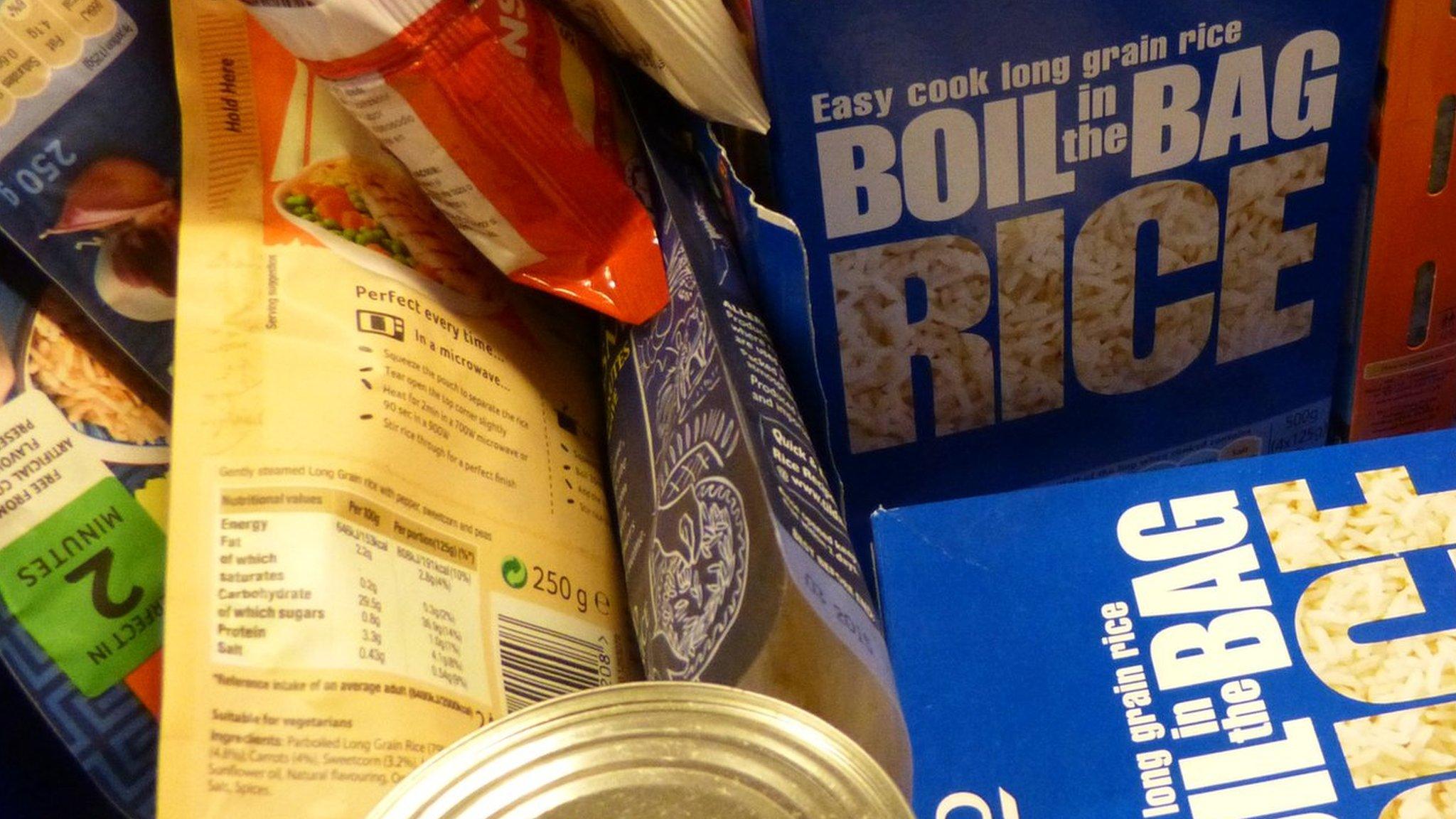
- Published6 April 2014
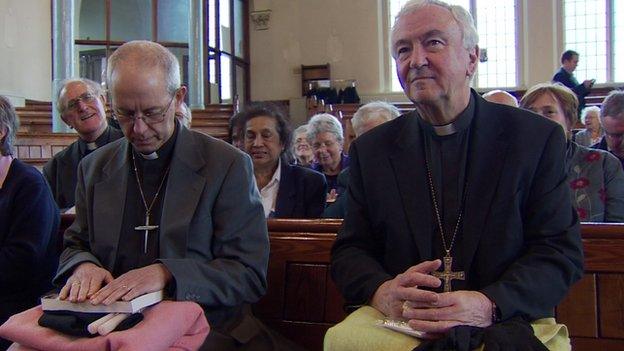
- Published5 March 2014
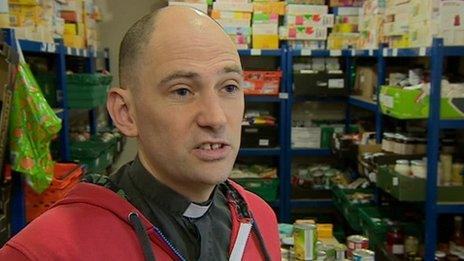
- Published3 March 2014
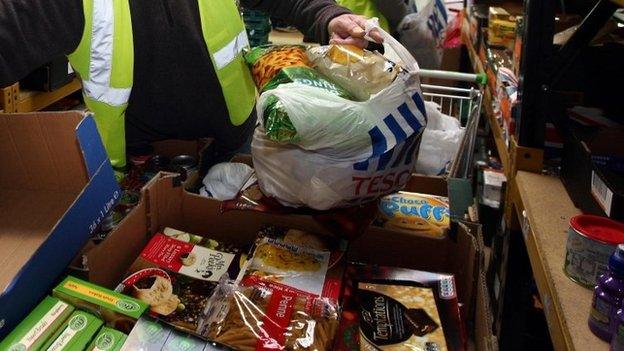
- Published20 February 2014
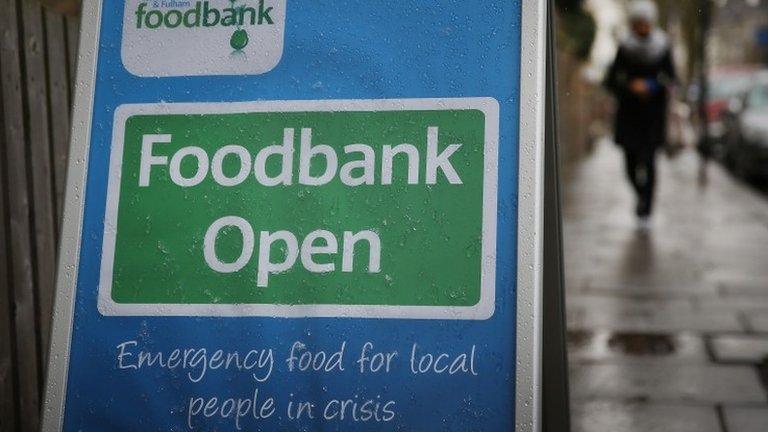
- Published19 February 2014
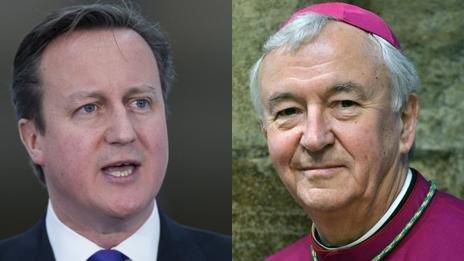
- Published24 April 2013
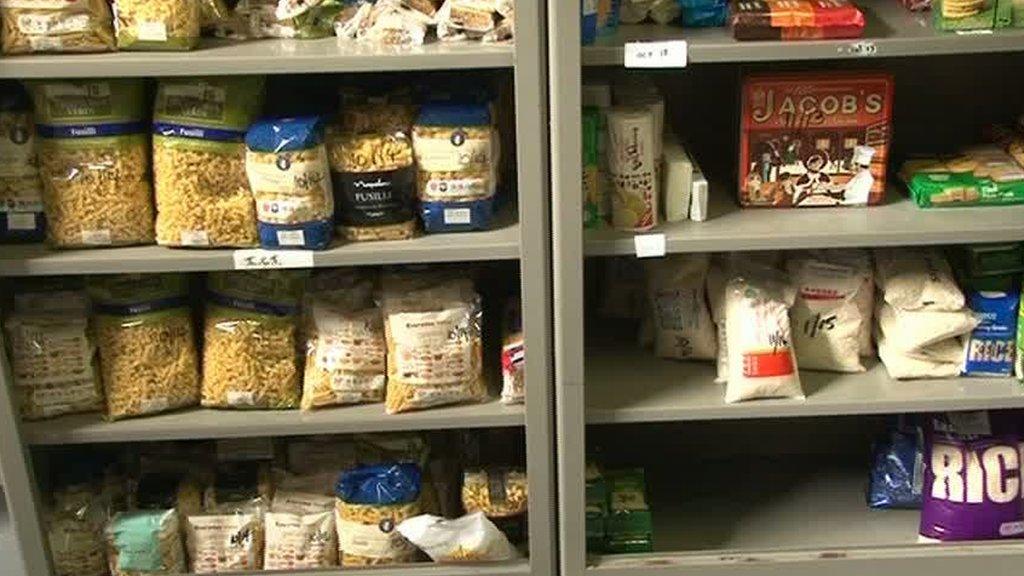
- Published2 October 2012
